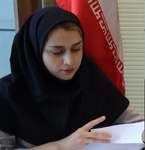Vice Foreign Minister Cho Tae-yul said he plans to visit Washington next week to announce the official launch of the high-level committee tasked with discussing the details of the accord.
"In mid-April, the first meeting will be held in Seoul," he said during a keynote speech at a symposium on nuclear issues.
Cho co-chairs the committee along with his US counterpart, Deputy Secretary of Energy Elizabeth Sherwood-Randall.
After years of negotiations, the allies struck the deal last year to allow Seoul to expand its peaceful nuclear activity despite US concerns that it could undermine its nonproliferation drive.
Under the accord, Seoul will be able to conduct research into a nascent nuclear-reprocessing technology known as "pyroprocessing."
It will also continue discussions with Washington on the possible low-level enrichment of uranium.
Responding to growing public calls for South Korea's nuclear armament, Cho reaffirmed Seoul's commitment to nuclear nonproliferation.
"From the military and economic perspectives, it is difficult to agree with such arguments," he said.
North Korea conducted its fourth nuclear test last month and launched a long-range rocket earlier this month.
Some South Korean politicians and analysts have argued that the only effective deterrent against North Korea's nuclear and missile programs is South Korea's own nuclear armament.
Jun Bong-geun, a professor at the Korea National Diplomatic Academy, ruled out the proposal as impossible under the current South Korea-US alliance.
"The South Korea-US alliance and the US nuclear umbrella are maintained on the premise of South Korea's denuclearization," he said at the symposium, according to a transcript released in advance.
South Korea's nuclear armament would in fact threaten the country's security by causing diplomatic friction with not only the US but also the rest of the international community, he argued.
On calls for the redeployment of US tactical nuclear weapons on the Korean Peninsula, Jun said that possibility is extremely low under the current US administration's policy for a nuclear weapons-free world.
YNA/MNA


























Your Comment